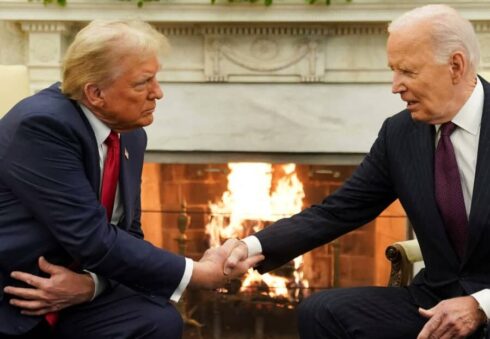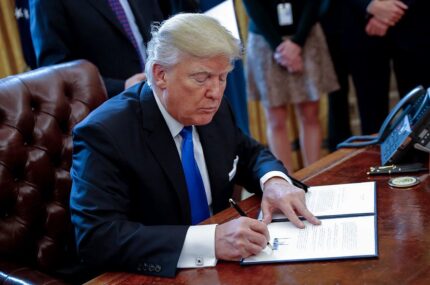Senator Ted Cruz was hardly amused when Texas Democrats, in a now-viral stunt, unveiled a resolution aimed at banning him from attending college playoff games. “The nine scariest words for any college fan to hear are ‘I’m Ted Cruz and I’m coming to your game,’” said Bill Kelly, Harris County Democratic Party precinct chair, as laughter echoed through political and sports communities alike. The resolution, jointly authored by Kelly and Charles Kuffner, cites Cruz’s “record of personal failure” in the sports arena as grounds for the ban.
Ted Cruz began his public pushback swiftly. “This is unserious governance,” he told reporters. “I’ve been attending Texas sports games since I could walk. Win or lose, I show up.” But online, the mockery was relentless. The resolution, though symbolic, hit a cultural nerve—melding politics, superstition, and sports heartbreak into a uniquely Texan roast.
The Cruz Curse — Chronicle Confirms Years of Playoff Pain
Ted Cruz’s reputation as a bad luck charm isn’t just political folklore. The Houston Chronicle editorial board formally acknowledged the “Cruz curse” last year, cataloging key games in which Cruz’s courtside presence coincided with devastating losses. Notable examples include the Houston Rockets’ 2018 playoff heartbreak against the Warriors and Texas Tech’s gut-wrenching 2019 NCAA Finals loss to Virginia.
Cruz began refuting the narrative publicly in 2023, tweeting supportive messages for his favorite teams—but fans were quick to ask him to stop. “Just say nothing, Ted. Please. We want to win,” read one fan’s reply under his NCAA tweet. The Chronicle summed it up bluntly: “The list goes on and on.” The legend of Cruz’s sports hex now has its own cult following—and a growing group of bipartisan believers.
Political Satire or Strategy? Democrats Say It’s Both
Cruz’s staff labeled the resolution “juvenile,” but Democrats argue the mockery is a calculated tool of political engagement. “Silliness aside, a little mockery is a good tool to have in your belt for when it is needed,” said co-author Kuffner. By couching criticism in humor, Democrats claim they are drawing attention to larger frustrations with Cruz’s perceived ineffectiveness—especially among Texas youth.
Ted Cruz was quick to dismiss the resolution as “an unserious sideshow,” but political analysts are calling it smart optics. “This kind of satire punches through the noise,” said Dr. Lena Ford, a political communication expert. “It frames Cruz as not only unlucky but out of touch—especially with a generation that’s increasingly cynical about traditional politics.” The ban may be fake, but the narrative damage is very real.
Texans React with Memes, Mockery, and March Madness Trauma

As soon as the resolution went public, Texans flooded social media with memes under hashtags like #CruzCurse, #KeepTedHome, and #TedPleaseStayAway. One viral post featured a split screen of Cruz at a game and a crying mascot. “Coincidence? We think not,” the caption read. The University of Houston’s recent loss to the University of Florida, witnessed live by Cruz, reignited the curse theory in full force.
Ted Cruz took to his podcast to defend himself, saying, “When they win, I’m there. When they lose, I’m there. That’s called loyalty.” Unfortunately for him, the comment backfired—sparking a new wave of satire. “Ted Cruz: loyal… to losing,” quipped one TikToker. Texans might be divided politically, but on the Cruz curse, many seem united in superstition.
Republicans Unamused While Democrats Call for Bipartisan ‘Game Ban’
Cruz’s GOP colleagues have remained largely silent, with one aide privately calling the resolution “a distraction from real issues.” But Democrats argue that it’s time both parties unite around a common cause. “This should be something that Republicans and Democrats can agree on,” said Kelly. “Ted Cruz needs to stay away from college games. It’s time to protect the playoff spirit.”
Ted Cruz insists the criticism is nothing more than petty trolling. His spokesperson released a strongly worded statement: “Senator Cruz has been a lifelong supporter of Texas sports. This resolution is beneath the dignity of public office.” Nevertheless, insiders report that Cruz’s office is “not laughing”—even as Texans keep the joke alive across every platform possible.
The Resolution Moves Forward — Cruz’s Sports Attendance Now a Civic Issue?
While technically non-binding, the resolution is reportedly moving toward formal introduction within the Harris County Democratic Party. Supporters are even urging national Democratic figures to chime in. “Let’s make college games a safe space again,” one supporter posted. A petition on Change.org titled Ban Ted from the Bleachers had already reached 10,000 signatures by Friday.
Ted Cruz, undeterred, vowed to attend “every game I love.” But if this resolution gains traction, his future game-day appearances might come with unwanted celebrity. From MAGA rallies to March Madness, the senator from Texas now carries a new title: America’s most infamous sports jinx.














